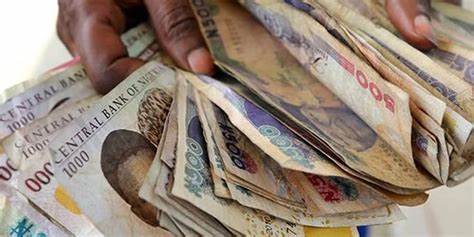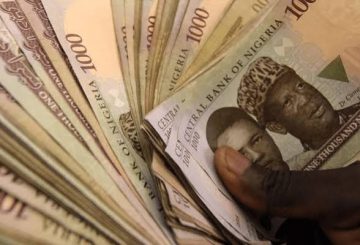According to a new analysis from the economic think tank Centre for the Promotion of Private Business, Nigeria’s economy is collapsing and has lost nearly N20 trillion since the Federal Government mopped up cash by over 70% through the Central Bank of Nigeria.
It said that in addition to crippling economic activity all over Nigeria, the prolonged acute cash shortage now posed a serious threat to the majority of Nigerians’ ability to support themselves.
The Director, CPPE, Dr. Muda Yusuf while reacting to the currency redesign policy stated, “Millions of citizens have slipped into penury and destitution as a result of the disruptions and tribulations perpetrated by the currency redesign policy, especially the mopping up of over 70 per cent of cash in the economy.”
The President, Major General Muhammadu Buhari (ret.), was urged to act quickly, he emphasized, because “Nigerians have not been this traumatized in recent history.”
Speaking further he said, “The economy is gradually grinding to a halt because of the collapse of payment systems across all platforms. Digital platforms are performing sub-optimally because of congestion; physical cash is unavailable because the CBN has sucked away over 70 per cent of cash in the economy; and the expected relief from the Supreme Court judgement has not materialised.
“The citizens are consequently left in a quandary. The banks claimed that the CBN has not officially communicated the Supreme Court judgment to them for any actions.
“The President has maintained a worrying muteness on the judgment; the market women and men are waiting to hear from President Buhari or the CBN governor on the legal tender status of old currency notes.”
The CPPE boss remarked that it was odd that the Federal Government and the CBN were reluctant or unwilling to abide by the Supreme Court ruling, describing this as extremely unsettling and puzzling.
According to Yusuf, “Meanwhile, Nigerians continue to groan in the adversity inflicted by the acute cash shortage amid rejection of old currency notes by market operators, refusal by banks to accept the old notes, silence by the Presidency on the Supreme Court judgement; and absence of official pronouncement by the CBN on the issue.”
He emphasized how stressful and upsetting retail transactions had grown across sectors as a result of ongoing payment system issues.
“Since the onset of the cash crisis, the Nigerian economy has lost an estimated N20tn. These losses arose from the deceleration of economic activities, crippling of trading activities, stifling of the informal economy, contraction in the agricultural sector and the paralysis of the rural economy. There are also corresponding job losses in the hundreds of thousands.”





